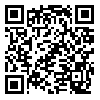Objectives: The goal of the present study was to determine the prediction model of social phobia by investigating a number of its predictors. In this study shyness, behavioral inhibition, attentional bias, interpretation bias, social self-efficacy and attachment were assessed as predictors of social phobia. Method: 438 students of Tehran University participated in this study. All participants completed Social Phobia Inventory, Stanford Shyness Survey, Adult Measure of Behavioral Inhibition, Retrospective Measure of Behavioral Inhibition, Focus of Attention Questionnaire, Consequences of Negative Social Events Questionnaire, Self-efficacy for Social Situation Scale and Adult Attachment Scale. Results: All variables were significantly correlated with social phobia (p<0.001). Stepwise multiple regression analysis suggested a predictive model for social anxiety including shyness, ambivalent attachment, avoidant attachment, adult behavioral inhibition, retrospective behavioral inhibition, social self-efficacy, negative self-evaluation and negative evaluation by others. Conclusion: Except for attentional bias and secure attachment which cannot predict social phobia, the other studied variables (shyness, social inhibition, interpretation bias, and social self-efficacy) can predict social phobia.
Type of Study:
Original Research |
Subject:
Psychiatry and Psychology Received: 2010/04/4 | Published: 2010/04/15




